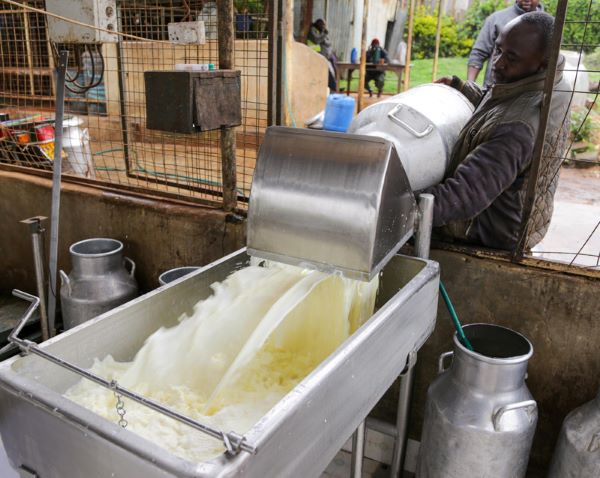
Kenya’s trading partners who have been or intending to sell powdered milk to the country are set to enjoy the market opportunity after importation ban on the dairy product was lifted.
According to a statement by Harry Kimtai, the Permanent Secretary in the ministry of Agriculture and Livestock Development dated March 14, 2023, the ban suspension allows the application of the Dairy Industry (Import and Export) Regulations 2021 that permitted the imports.
Most farmers opposed the regulation on grounds that it sought to sabotage the dairy sector by creating loopholes for cheap milk products to be imported from neighboring countries, thus threatening their livelihoods.
The Kenya Dairy Board had on March 6 this year announced an indefinite suspension of milk powder imports in move to protect milk processors and farmers from lower prices since the product imports could lead to a glut in the market following the anticipated seasonal rains that would boost local milk production and reduce the need for imports.
“Take note that the importation of products under the East African Community (EAC) protocol refers to goods being imported from outside the East African Community, while goods traded within the EAC are referred to as transfers,” said Kimtai.
This move has been warmly received by Uganda which sells milk products and especially powdered milk to Kenya.
According to Rebecca Kadaga, Uganda’s First Deputy Prime Minister and Minister for East African Community Affairs, the decision was arrived at after a fruitful discussing with Mr Abdi Dubat, Permanent Secretary in Kneya’s Ministry of East African Community on bilateral issues.
“I am happy to inform the dairy industry in Uganda that the ban by Kenya on milk products has been lifted meaning this will allow our processors secure the market again,” she said.
This revives the hopes following the announcement by the new Kenyan government that cheap milk imports from Uganda would be allowed and that the Kenyan milk would be processed for the international market.
Chief buyer
Kenya has been the chief buyer of the Ugandan powdered milk, however, the trade relations have not been good due to several barriers that has existed for some times now.
The ban had prompted Uganda to look for other markets for their dairy products in South Sudan, Zambia, Democratic Republic of Congo and Algeria.
Others include USA, Syria, United Arab Emirates, Bangladesh, Oman, Nepal and Japan.
For instance, in a recent three-day official visit to Algeria, Uganda’s President Yoweri Museveni secured a $500 million worth of milk import by the North African country.
Kenya’s dairy production and consumption
Currently, Kenya has one of the most developed dairy sub-sector in Sub-Saharan Africa with an estimated growth rate of 7 per cent.
Kenya is the third-largest milk producer after Ethiopia and Sudan with 5.2 billion litres annually and has the highest per capita consumption in Africa at 120 liters compared with the African average of 50 liters, but way below the globally recommended 250 liters.







